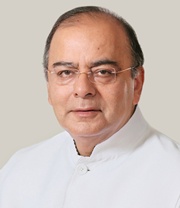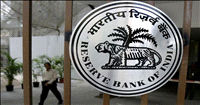Govt cuts non-Plan expenditure by 10%, bans creation of new posts
30 Oct 2014
 The finance ministry has announced new austerity measures, including a 10-per cent reduction in non-Plan expenditure, which includes discretionary spending such as travel and tours, and a ban on creation of new posts, in line with lower revenue realisation so far during the financial year.
The finance ministry has announced new austerity measures, including a 10-per cent reduction in non-Plan expenditure, which includes discretionary spending such as travel and tours, and a ban on creation of new posts, in line with lower revenue realisation so far during the financial year.
''For the year 2014-15, every ministry / department shall effect a mandatory 10-per cent cut in non-Plan expenditure, excluding interest payment, repayment of debt, defence capital, salaries, pension and finance commission grants to the states,'' the expenditure department of the finance ministry stated in an office memorandum.
The austerity measures will not affect the government's interest and debt payments, the defence budget, salaries and pensions, according the finance ministry release.
The finance ministry has prhibited first class travel for government officials despite being entitled to them.
''While officers are entitled to various classes of air travel depending on seniority, utmost economy would need to be observed while exercising the choice keeping the limitations of budget in mind. However, there would be no bookings in first class," it said.
Also, the finance ministry has advised that in all cases of air travel, the lowest air fare tickets available for the entitled class are to be purchased. No free companion ticket on both domestic and international travel is to be availed of.
''Facility of video conferencing may be used effectively,'' it said.
On filling up of posts, the memo advised against addition of jobs - both non-Plan and planned. Posts that have remained vacant for more than a year are to be abandoned, except under very rare and unavoidable circumstances and only after getting clearance of the expenditure department.
The finance ministry said the measures were intended to promote fiscal discipline, without restricting the operational efficiency of the government. ''In the context of the current fiscal situation, there is a need to continue to rationalise expenditure and optimise available resources,'' it said.
The central government's collection of indirect taxes grew 5.8 per cent during first six months of the current fiscal against the budget target of 25.8 per cent.
Though gross direct tax collection registered a growth of 15 per cent in line with the budget target of 15 per cent, the rate of growth for net collection (gross collection minus refund) was mere 7 per cent.
The only redeeming factor was the fall in crude prices that helped de-regulate diesel prices while also saving on foreign exchange outgo.
Finance minister Arun Jaitley in his budget had projected a fiscal deficit target of Rs5,31,000 crore, or 4.1 per cent of the country's gross domestic product (GDP) for the current fiscal year.
India's fiscal deficit touched nearly 75 per cent of the full-year target, or Rs3,97,000 crore, in the first five months of the fiscal (April-August).
The fiscal deficit - gap between government expenditure and revenue - was pegged at 4.5 per cent of GDP in 2013-14.
The government had planned to make Rs40,000 crore through sale of stake in public sector units, but is yet to kick off disinvestment plan.













.jpg)






.jpg)









